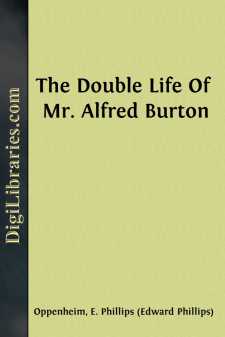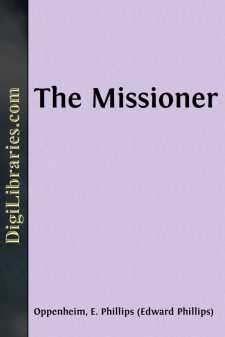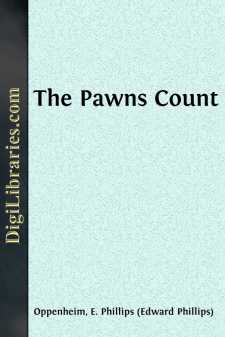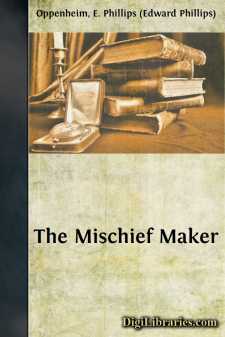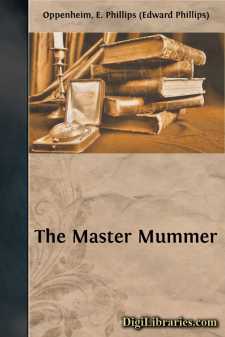Categories
- Antiques & Collectibles 13
- Architecture 36
- Art 48
- Bibles 22
- Biography & Autobiography 813
- Body, Mind & Spirit 142
- Business & Economics 28
- Children's Books 15
- Children's Fiction 12
- Computers 4
- Cooking 94
- Crafts & Hobbies 4
- Drama 346
- Education 46
- Family & Relationships 57
- Fiction 11828
- Games 19
- Gardening 17
- Health & Fitness 34
- History 1377
- House & Home 1
- Humor 147
- Juvenile Fiction 1873
- Juvenile Nonfiction 202
- Language Arts & Disciplines 88
- Law 16
- Literary Collections 686
- Literary Criticism 179
- Mathematics 13
- Medical 41
- Music 40
- Nature 179
- Non-Classifiable 1768
- Performing Arts 7
- Periodicals 1453
- Philosophy 64
- Photography 2
- Poetry 896
- Political Science 203
- Psychology 42
- Reference 154
- Religion 513
- Science 126
- Self-Help 84
- Social Science 81
- Sports & Recreation 34
- Study Aids 3
- Technology & Engineering 59
- Transportation 23
- Travel 463
- True Crime 29
The Vanished Messenger
Description:
Excerpt
CHAPTER I
There were very few people upon Platform Number Twenty-one of Liverpool Street Station at a quarter to nine on the evening of April 2—possibly because the platform in question is one of the most remote and least used in the great terminus. The station-master, however, was there himself, with an inspector in attendance. A dark, thick-set man, wearing a long travelling ulster and a Homburg hat, and carrying in his hand a brown leather dressing-case, across which was painted in black letters the name MR. JOHN P. DUNSTER, was standing a few yards away, smoking a long cigar, and, to all appearance absorbed in studying the advertisements which decorated the grimy wall on the other side of the single track. A couple of porters were seated upon a barrow which contained one solitary portmanteau. There were no signs of other passengers, no other luggage. As a matter of fact, according to the time-table, no train was due to leave the station or to arrive at it, on this particular platform, for several hours.
Down at the other end of the platform the wooden barrier was thrust back, and a porter with some luggage upon a barrow made his noisy approach. He was followed by a tall young man in a grey tweed suit and a straw hat on which were the colours of a famous cricket club.
The inspector watched them curiously. "Lost his way, I should think," he observed.
The station-master nodded. "It looks like the young man who missed the boat train," he remarked. "Perhaps he has come to beg a lift."
The young man in question made steady progress up the platform. His hands were thrust deep into the pockets of his coat, and his forehead was contracted in a frown. As he approached more closely, he singled out Mr. John P. Dunster, and motioning his porter to wait, crossed to the edge of the track and addressed him.
"Can I speak to you for a moment, sir?"
Mr. John P. Dunster turned at once and faced his questioner. He did so without haste—with a certain deliberation, in fact—yet his eyes were suddenly bright and keen. He was neatly dressed, with the quiet precision which seems as a rule to characterise the travelling American. He was apparently of a little less than middle-age, clean-shaven, broad-shouldered, with every appearance of physical strength. He seemed like a man on wires, a man on the alert, likely to miss nothing.
"Are you Mr. John P. Dunster?" the youth asked.
"I carry my visiting-card in my hand, sir," the other replied, swinging his dressing-case around. "My name is John P. Dunster."
The young man's expression was scarcely ingratiating. To a natural sullenness was added now the nervous distaste of one who approaches a disagreeable task.
"I want, if I may, to ask you a favour," he continued. "If you don't feel like granting it, please say no and I'll be off at once. I am on my way to The Hague. I was to have gone by the boat train which left half an hour ago. I had taken a seat, and they assured me that the train would not leave for at least ten minutes, as the mails weren't in....




